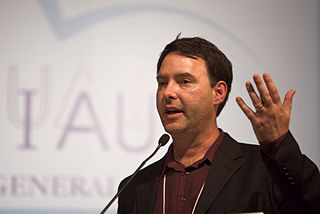A Quote by Steven Sinofsky
Management, at every level, is about the effort to frame challenges, define end states, and allocate resources to navigate between them.
Related Quotes
At the front end, to stop people from illegally entering our country, not at the back end, by reimbursing states after it has failed to enforce the border. [I] would allocate additional resources to enforcing the border, so states such as Texas and California would not have the huge expenses they currently do.
When resources are degraded, we start competing for them, whether it is at the local level in Kenya, where we had tribal clashes over land and water, or at the global level, where we are fighting over water, oil, and minerals. So one way to promote peace is to promote sustainable management and equitable distribution of resources.
No leader can possibly have all the answers . . . .The actual solutions about how best to meet the challenges of the moment have to be made by the people closest to the action. . . .The leader has to find the way to empower those frontline people, to challenge them, to provide them with the resources they need, and then to hold them accountable. As they struggle with . . . this challenge, the leader becomes their coach, teacher, and facilitator. Change how you define leadership, and you change how you run a company.
One of my favorite literary theorists, Mikhail Bakhtin, wrote that the defining characteristic of the novel is its unprecedented level of "heteroglossia" - the way it brings together so many different registers of language. He doesn't mean national languages, but rather the sublanguages we all navigate between every day: high language, low language, everything. I think there's something really powerful about the idea of the novel as a space that can bring all these languages together - not just aggregate them, like the Internet is so good at doing, but bring them into a dialogue.
Industrial production, the flow of resources in the economy, the exertion of military effort in a war theater-all are complexes of numerous interrelated activities. Differences may exist in the goals to be achieved, the particular processes involved, and the magnitude of effort. Nevertheless, it is possible to abstract the underlying essential similarities in the management of these seemingly disparate systems.
Management, in the sense of employer, is merely the agent for the public, the stockholders and the employees. It is management's job to preserve the balance fairly between all these interests, that each may have his fair share without imperiling the continuity of the effort upon which the whole depends.
The opportunities and threats existing in any situation always exceed the resources needed to exploit the opportunities or avoid the threats. Thus, strategy is essentially a problem of allocating resources. If strategy is to be successful, it must allocate superior resources against a decisive opportunity.
You can’t mandate [cultural change], can’t engineer it. What you can do is create the conditions for transformation. You can provide incentives. You can define the marketplace realities and goals. But then you have to trust. In fact, in the end, management doesn’t change culture. Management invites the workforce itself to change the culture.
I think the next 50 years are going to present the human race with challenges that so far exceed the limitations of geopolitical boundaries or nationalist identity. We're going to be up against challenges that we can barely fathom at this point. So how we embrace them and deal with them will define a great many things about where we go, but, you know, it's hard to say. We're teetering on the edge, I would say.



































